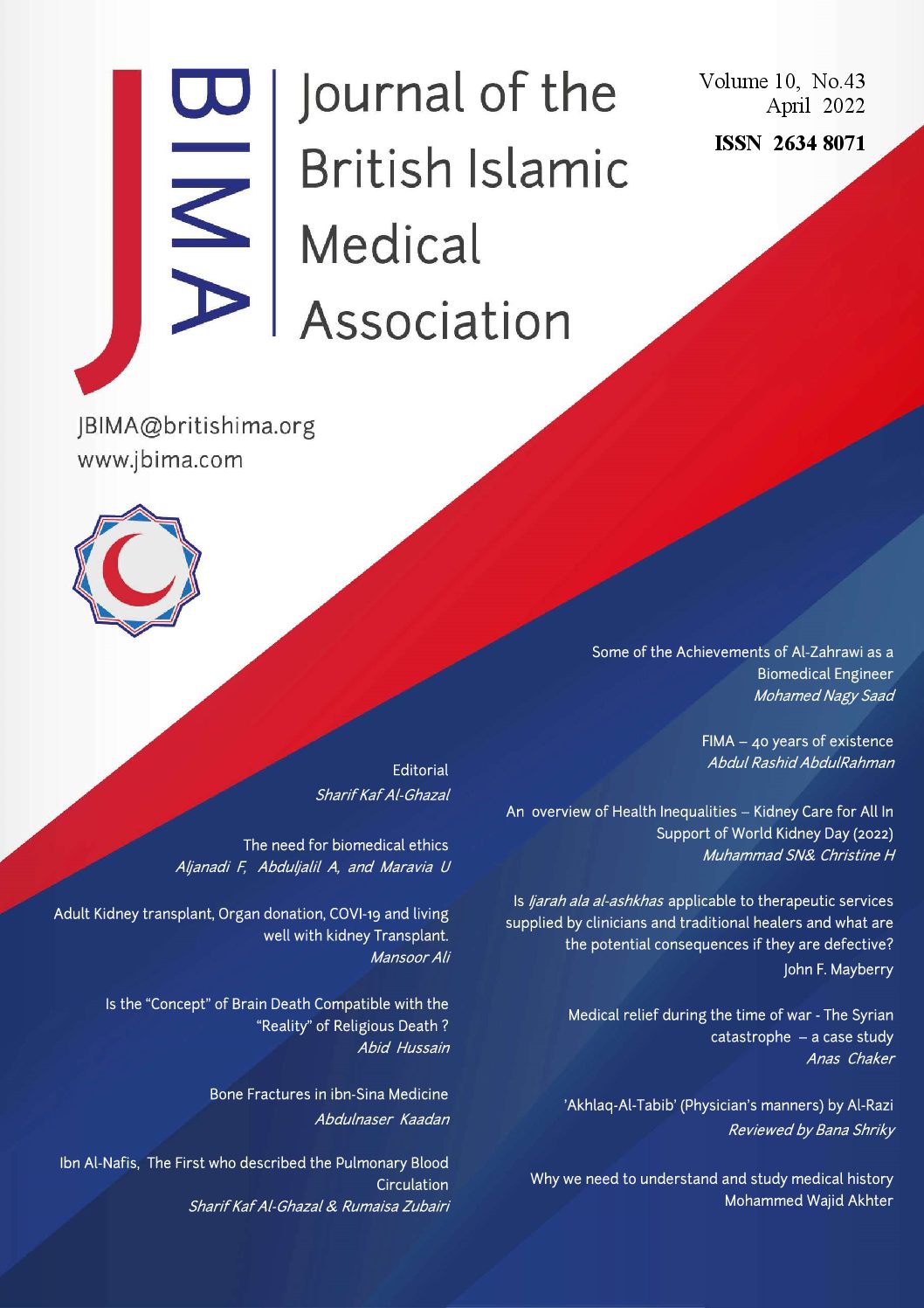
Abstract
Muslims are forbidden from consuming meat that is not
halal as mentioned in the Quran. Heparin is commonly
used as an anticoagulant to prevent and treat
thromboembolism. However, heparin contains porcine
derived products, making it unsuitable for Muslim
patients [1]. Some individuals including Muslim patients
and healthcare professionals are unaware of this
information.
A literature review will be conducted to delve into the
implications for Muslim patients regarding the use of
heparin and its porcine-derived ingredient. This
comprehensive analysis will explore potential
alternatives and consider these factors in shaping future
healthcare practices, aiming to address the needs of
Muslim patients while ensuring adherence to religious
beliefs and values.
Muslim patients should actively seek suitable alternatives
to heparin when available, consulting with their
healthcare providers to explore options that align with
their religious beliefs and medical needs. Current practice
often involves the use of fondaparinux as an alternative
to heparin. However, if out of necessity and no
alternative exists, the use of medication containing haram
animal ingredients is permissible for Muslim patients
[2].
By disseminating information on a larger scale through
avenues such as leaflets, media campaigns, and public
health initiatives, patients and health care professionals
can become more aware of which medications contain haram animal ingredients. This widespread education
empowers patients to seek suitable alternatives, ensuring
they make informed decisions about their healthcare
Similarly, healthcare professionals can offer tailored
treatment suggestions to Muslim patients, extending this
approach to accommodate those with specific dietary
requirements, thereby ensuring comprehensive and
culturally sensitive care.
Ultimately, this review seeks to promote a healthcare
approach that integrates religious considerations into
medical practice, ensuring that all patients receive care
that aligns with their beliefs and values.
References
- Sadat-Ali M, Al-Turki HA. The use of porcine derived
low molecular weight heparins in Muslims. Saudi Med J.
2013 Aug;34(8):865. - Ali O, Aljanadi F, Rahbi H. The use of porcine
bioprosthetic valves: an Islamic perspective and a bio
ethical discussion | Journal of the British I
Association [Internet]. 2022. Available from:
https://www.jbima.com/article/the
bioprosthetic-valves-an-islamic
ethical-discussion/

